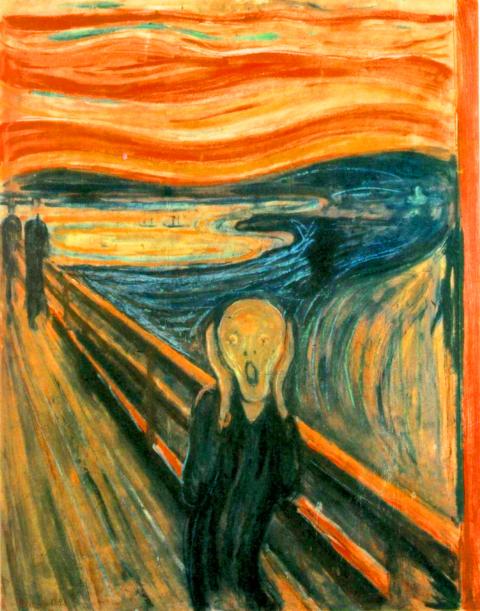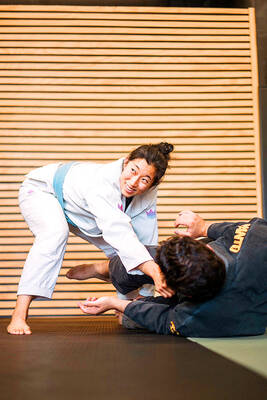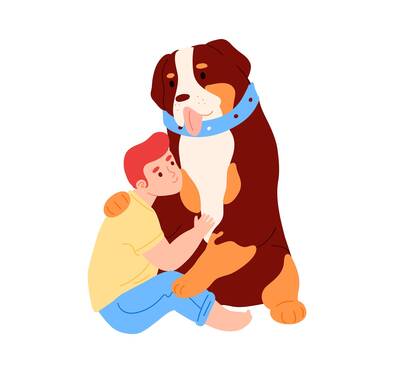Chinese practice
毛骨悚然
(mao2 gu2 song3 ran2)

Photo: Wikimedia Commons
照片:維基共享資源
have one’s hair stand on end
筆記小說在魏晉時期開始出現,特點為篇幅短小、內容繁雜;後人將其分為描述名人的言行軼事的「志人小說」,以及講說神仙鬼怪迷信故事的「志怪小說」兩類。
洪邁(西元一一二三~一二○二年)的《夷堅志》為宋朝著名的志怪小說,其中一篇故事〈大渾王〉寫道,有一個名叫興祖的人夢見他死去的好友來拜訪他,並帶他到一間大官府去,介紹說這是興祖幾天後要辦公的地方;同時還有一個小孩出來拉著興祖的衣服,竟然是興祖幾年前早夭的孩子。朋友要興祖先回去,過幾天再迎接他過來。興祖突然醒了,原來這是一場夢。
不久,興祖有事外出,經過那位死去的朋友家時,感到「毛骨凜然俱竦」──從外在的毛髮到骨頭裡都寒冷恐懼起來,結果因此得了病,過幾天就死了。此語後來演變為成語「毛骨悚然」,形容極端驚懼害怕。
成語「毛骨悚然」後來也出現在許多小說中而為人所熟知,包括《三國演義》第二二回:「左右將此檄傳進,操見之,毛骨悚然,出了一身冷汗。」以及《西遊記》第一○回:「龍王見說,心驚膽戰,毛骨悚然。急丟了門板,整衣伏禮。」
此成語也有許多變體,可寫作「毛骨竦然」、「毛骨聳然」,以及「毛髮悚然」等。
有趣的是,我們可以觀察到洪邁的故事元素和他使用的一些文學手法,特別是夢的場景接續,在現代仍常用於故事的鋪陳;他所描述的恐懼感也是人類普遍的經驗,放諸任何時代或文化皆然。在英文中用來描述恐懼襲來的感覺,可以說chill/shiver running up/down the spine(令人背脊發涼),或是說one’s hair standing on end(令人頭髮豎立)。
(台北時報編譯林俐凱)
♦ 想到剛剛差了那麼一點點就被砸中,像跟死神擦身而過,真令人不禁毛骨悚然。
(The very thought of how close that was, and how it almost landed on me: It was like the Grim Reaper was standing over me. That really makes my hair stand on end.)
♦ 若對某些人事物覺得毛骨悚然,或許是因為自己對其缺乏了解,而盲目地感到害怕。
(If something sends a chill down your spine, it probably means you don’t understand it properly: It’s just fear born of ignorance.)
英文練習
send a chill up/down one's spine
have one's hair stand on end
The biji xiaoshuo (notebook fiction) literary format, generally eclectic stories and musings in a concise writing style, first emerged during the Wei and Jin dynasties. The format would later be divided into two categories, the zhiren xiaoshuo (writings on people), describing anecdotes and sayings of people of note, and the zhiguai xiaoshuo (tales of the miraculous), relating supernatural and mystery stories.
The Records of Yi Jian by the Song Dynasty writer Hong Mai (1123-1202) is a zhiguai xiaoshuo that was popular during the Song. One of the stories in this book, the da hun wang, tells of how a man named Xing Zu has a dream in which he is visited by a man he recognizes as a close friend who had died some time before. The man takes Xing Zu to an official’s building, and tells him that in a few days’ time this is the office from which Xing Zu will be carrying out his official duties. A little boy enters and tugs on Xing Zu’s official robes, and Xing Zu recognizes the boy as his own son, who had died several years previously. The friend then asked Xing Zu to return home, telling him that he would be summoned again in a few days. At this point Xing Zu wakes up, and realizes it was all a dream.
Soon after, however, Xing Zu goes out on official business and, as he is passing the house of the friend who had appeared to him in the dream, he feels a rush of cold fear shoot through him, from the hair on his body down to the marrow of his bones, as Hong Mai has it. Xing Zu falls ill, and is dead within days. From Hong Mai’s original phrase 毛骨凜然俱竦 we get the idiom 毛骨悚然, which is now used to express a feeling of utter dread.
The idiom has been used in several major Chinese literary works, not least in the Romance of the Three Kingdoms and the Journey to the West. In Chapter 22 of the former, the warlord Cao Cao receives a summons to war and, on reading it, feels a chill run down his spine, and he breaks out in a cold sweat. In Chapter 10 of the latter, the Sea King is angered by news, and sets about beating the messenger with a wooden door beam. When he realizes the implications of the message, however, and the danger he is in, he is stricken with fear, and drops the beam, collecting himself and offering apologies to the messenger.
The idiom has several other variants, including 毛骨竦然, 毛骨聳然 and 毛髮悚然.
It is interesting how elements of Hong Mai’s story, and some of the literary devices he uses, notably the dream sequence, are still used in modern storytelling, and the feeling of dread he describes is a universal part of the human experience, irrespective of time or culture. In English, we can describe the feeling of the moment at which dread hits as a chill – or shiver – running up/down one’s spine, or one’s hair standing on end.
(Translated by Paul Cooper)
♦ Dave's driving is atrocious. I feared for my life. I spent the whole journey with my hair standing on end.
(大衛的開車技術很糟,我只怕自己性命不保,全程都心驚膽戰。)
♦ It's a great story, with a really creepy ending. It sent a chill running down my spine.
(這故事很精彩,結局很恐怖,讓人毛骨悚然。)

Picture a 45-foot-long animal with a 5-foot-long skull and 3-foot-long arms. It may not seem strange until you realize that a human with those proportions would be 6 feet tall with 5-inch arms. Although the Tyrannosaurus rex went extinct 65 million years ago, the mystery of its unusual body __1__ has fascinated scientists for over a century. Barnum Brown, the paleontologist who first discovered T. rex fossils, initially found it hard to believe that the tiny arms belonged to such a __2__ creature. One of his colleagues speculated that the short forelimbs might have been used to hold the

A: Actually, Brazilian jiu-jitsu is particularly good for small people like you. B: Really? How so? A: According to Diana Wang, a US doctor of physical therapy, the BJJ’s purpose is to help smaller, weaker people defend themselves by using various techniques, such as leverage. B: That sounds interesting. What time does Dr Wang’s BJJ seminar begin tonight? A: The event is scheduled for 7:30pm at PMA Brazilian Jiu-jitsu in Taipei. Admission is free, but donations are welcome. A: 其實你的個子比較小,很適合練巴西柔術呢。 B: 真的嗎?為什麼? A: 據美國理療醫師王幼瑞博士說,巴西柔術的概念是讓弱小的人,也能利用槓桿作用等技巧防身。 B: 真有趣,王醫師的巴柔研討會幾點開始? A: 今晚7點半在「台北巴柔運動館」,免費入場自由樂捐唷! (By Eddy Chang, Taipei Times/台北時報張迪)

Photographer Franziska Stuenkel likes to take spontaneous urban shots, so she needs a nimble camera that is ready to go when inspiration strikes: her German-made Leica M11. “I have to be very quick and discreet,” said the Berlin-based artist who captures reflections of people walking past windows, their contours merging with the shapes behind the glass. Stuenkel’s compact Leica is the perfect camera for the job, the 51-year-old told AFP. Famous for its pocket-sized and retro-style devices, the Leica brand is celebrating a milestone as it marks 100 years since its first commercial camera was presented to the public. The

Dogs’ noses are incredibly keen. They can even detect changes in cortisol levels in human sweat and breath. Known as the “stress hormone,” cortisol increases when humans are under pressure. Recent research indicates that the smell of human stress can influence a dog’s behavior and emotions. In the study, human volunteers were exposed to the stressful tasks of preparing and delivering a speech on the spot and then solving math problems. __1__ Researchers collected sweat and breath samples from the volunteers on pieces of cloth during both their stressful and restful states. Meanwhile, other researchers worked with 18